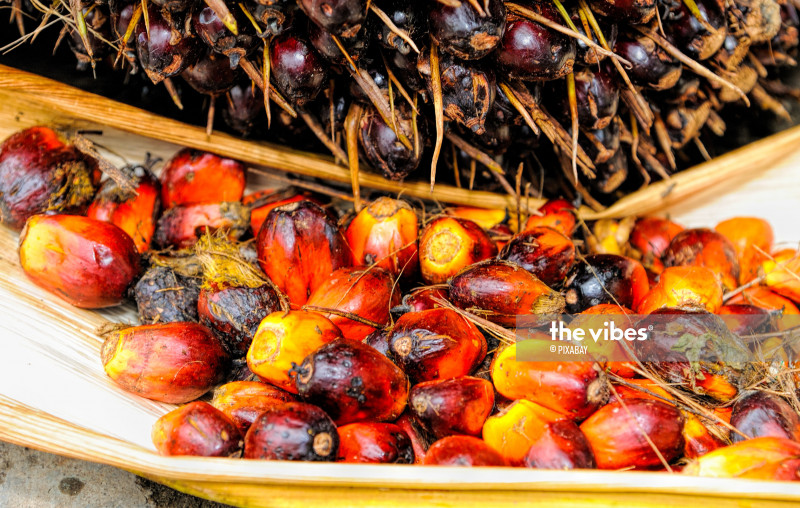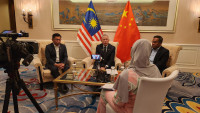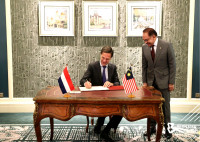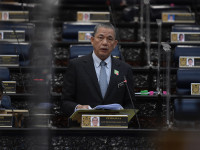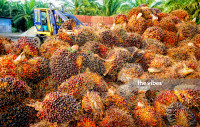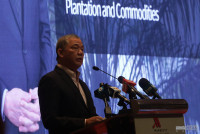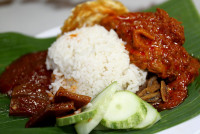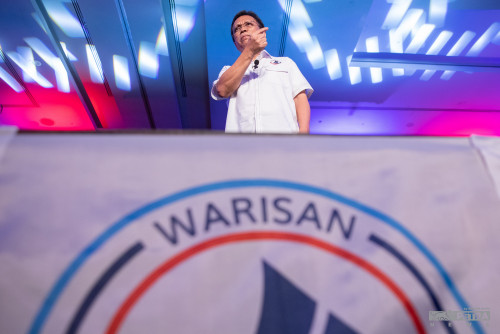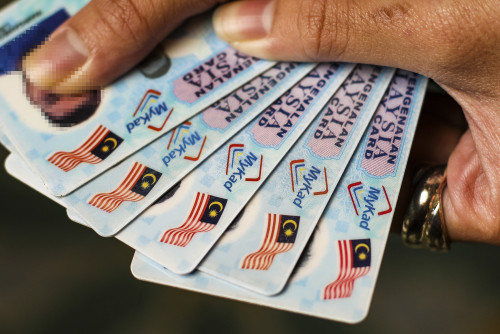IN this day and age, where sustainability, conservation efforts and climate change concerns are prioritised, a country’s “attractiveness” is inevitably viewed through these lenses.
A nation’s brand is built on the reputation and credibility of this attractiveness, enhancing the country’s soft power. As the most efficient and sustainable producer of the world’s most highly consumed vegetable oil, Malaysia has the potential to brand itself as a world leader in sustainability.
Palm oil’s rapid expansion in countries along the tropical belt has raised questions about the sustainability of this crop. Environmental and human rights concerns, such as deforestation, fires, threats to biodiversity and unfavourable labour practices, have become main topics of discussion. This has led to environmental NGOs and consumer groups in buyer countries putting pressure on manufacturers and retailers by encouraging boycotts of products containing palm oil.
The European Commission reacted and revised its Renewable Energy Directive (EU RED II) in 2018 to phase out the import of high-risk indirect land-use change biofuels by 2030. This created a possibility that palm oil imports to Europe would be seriously affected, as it would automatically include palm oil.
As a major producer, Malaysia naturally contested these accusations. The European Union’s concerns have largely been brushed off by Malaysian representatives, without any real counter-explanations. Malaysia has initiated a World Trade Organisation dispute over the EU RED II measures, and there has been talk of the discontinuation of EU-Malaysia trade negotiations.
Growth of palm oil
The palm fruit Elaeis guineensis originated from Africa, and now dominates the landscape of Southeast Asia, mainly Malaysia and Indonesia. Together, they produce 86% of the world’s palm oil, followed by Colombia and Nigeria.
Today, palm oil is the most consumed and widely traded vegetable oil in the world. It is a huge part of the food and product value chain, with the World Wildlife Fund estimating that it is in around 50% of packaged goods in supermarkets, animal feed and biofuel.
With its high frying point and ability to blend well with other oils, it is a popular cooking oil in Asia and Africa. As it holds consistency, it acts as a natural preservative, making it a widely used ingredient in processed goods.
Palm oil delivers the best land-to-oil ratio of all vegetable oils. A hectare of oil palm can produce four tonnes of vegetable oil every year, compared to 0.67 tonnes for rapeseed, 0.48 tonnes for sunflower, and just 0.38 tonnes for soybeans. Under ideal conditions, high-yield oil palm can produce more than 25 times the amount of oil as soy for the same area of farmland.
This efficiency has kept palm oil prices low and worldwide demand high. The crop has lifted incomes in rural areas, and the International Monetary Fund has pushed for more production. Palm oil soon became a major source of income for Malaysia, particularly for small-scale farmers. Large producers then entered the fray, upscaling plantations into major industrial operations. Palm oil then became deeply rooted in Malaysia’s developmental legacy.
Sustainability issues
Palm oil can be grown sustainably, and many industry- and country-based efforts, like the Roundtable for Sustainable Palm Oil (RSPO) and Malaysian Sustainable Palm Oil (MSPO), are encouraging shifts to more complete sustainable practices through certification.
MSPO has been criticised for being more lenient than the world’s leading sustainability certification scheme, RSPO. However, MSPO is progressive in its inclusion of smallholders. Under initiatives like RSPO, it can cost up to US$15 (RM60.67) more per tonne to certify sustainable palm oil, which is often beyond the budget of smaller producers. However, under government-backed initiatives like MSPO, these costs are absorbed or shared, making sustainability more affordable.
Concerned buyer markets have questioned the sustainability standards adopted by these certification systems, and the checks and balances adopted to ensure credibility. Malaysia’s confrontational responses have been detrimental to continuing discussions. Furthermore, attempts were made to coerce sustainability-conscious markets to “change their mind” about palm oil.
All palm oil producer countries have different sustainability trajectories, and are progressing at different speeds. Malaysia is ahead in its sustainability trajectories than other countries.
Building a Malaysian sustainable palm oil brand
A country’s esteem can be drawn from its association with a certain practice, identity or quality. For instance, the German automobile industry claims German engineering as one of its unique selling points. Both the German government and companies have invested heavily in research and development to stand out in precision engineering.
By the same token, Malaysia can gain esteem from its neighbours, market its goods, and compose the face it presents on the international stage through its sustainable practices.
The rising demand for palm oil can be met sustainably and economically through better agronomic practices. Through investments in research and development, the Malaysian Palm Oil Board has developed more efficient seeds, capable of producing greater yields. These fruits have been distributed to smallholders across the nation, boosting productivity per unit of land.
In addition to these on-the-ground initiatives, the branding element is essential, as a strong national brand is built on credibility and reputation. It is a strategic tool for a country to claim a distinct brand positioning in the minds of citizens, international stakeholders, and global consumers.
Examples vary from internationally recognised cuisine (Japan) and design aesthetics (Sweden) to fashion (France). Others include accreditations such as the European Demominazione di Origine Protetta (DOP), or Protected Designation of Origin.
The Malaysian Palm Oil Council (MPOC), the industry’s corporate organisation, has taken the lead in the national and global branding of Malaysian sustainable palm oil. By emphasising and advocating the strengths of “Malaysian” palm oil, MPOC intends to change the view that palm oil is a prime force behind deforestation in Malaysia.
The Malaysian government plays a major role in this branding exercise. Oil palm is featured prominently on the RM50 note, beside the first prime minister’s Independence Day salute, highlighting the role of the crop in the nation’s post-colonial development. Government campaigns like Love MY Palm Oil and Sawit Anugerah Tuhan (Palm Oil is God’s Gift), and the star-studded celebration of “100 Years of Malaysian Palm Oil” held at the very first oil palm estate in the country, aimed to push the image of palm oil both nationally and abroad.
However, these branding initiatives have been met with limited success, especially among markets in the developed world.
In retrospect, buyer countries can be induced to be more receptive to the Malaysian palm oil brand by utilising the nation’s soft power capabilities, paving the way to “distinguish” Malaysia as a leader of sustainably produced palm oil.
A soft power approach for sustainable palm oil
In many ways, Malaysia has utilised soft power strategies to build up its image.
Malaysia holds prominent roles in developing world organisations, like Asean, the Non-Aligned Movement, and Organisation of Islamic Cooperation. It has been an active contributor to United Nations peacekeeping missions and operations as peace-brokers within Asean, demonstrating commitments to global peace.
Post-independence, Malaysia’s accomplishments in economic, political and diplomatic developments have steadily gained global admiration.
As a result, Malaysia has been able to “punch above its weight” on the world stage. Developing countries look up to Malaysia, and the nation is considered a peer among developed nations. Malaysia’s passport has become the fourth-most-powerful in Asia, and 12th in the world. In addition, the nation’s achievements as peace-brokers in some Southeast Asian conflict zones are notable.
Tourism branding campaigns such as Malaysia Truly Asia and the gastro-diplomacy campaign Kitchen of the World have resonated globally. Malaysian cuisine and tourism grew with these branding initiatives.
This branding can be further strategised for “cooking” palm oil. Various African countries have signature dishes with palm oil as the major ingredient (see the Congolese palm oil stew and West African palm nut soup). Malaysia does not highlight palm oil as a key ingredient in any of its signature recipes, despite the oil being used for cooking. Spotlighting palm oil as a key ingredient of delicious Malaysian food will contribute to the nation’s branding.
The DOP model of placing a geographical stamp on Malaysia’s sustainable palm oil can be explored as well. In Italy, for an olive oil to qualify for the DOP name and logo, it must be grown, produced and bottled in a designated area that meets strict varietals, methods of production, and overall quality requirements. A similarly strict system for Malaysian palm oil will enhance buyer confidence in the brand.
Malaysia should also capitalise on its strong history of environmental preservation and conservation. It pledged to the international community, at the Rio Earth Summit in 1992, to preserve 50% of its tropical forests, and continues to be committed to this pledge.
Furthermore, through initiatives like Climate Governance Malaysia, the country familiarises corporations and other stakeholders with Paris Agreement-related responsibilities on climate resiliency and sustainability. Emphasising this aspect, especially when engaging with the EU, which is considered a Green Normative Power, would be beneficial.
Government campaigns like Love MY Palm Oil should focus equally on the socioeconomic successes and sustainability aspects of the crop. And instead of ad-hoc “palm oil missions”, a permanent brand attaché at embassies can be a useful diplomatic counterweight to the lobbying efforts of other oilseeds. This creates an avenue to productively engage in the development of EU-related standards for palm oil.
Conclusion
Malaysia’s groundwork for sustainable palm oil already exists. However, communication angles and dissemination strategies can be refined by leveraging the country’s soft power strengths. Softening confrontational approaches will go a long way in securing buy-ins from our key commodity trading partners.
This all-round approach will enhance the nation's brand of sustainable palm oil, securing a competitive edge and bolstering demand worldwide. Furthermore, recognition as the world leader in palm oil sustainability will further contribute to Malaysia’s esteem and attractiveness on the world stage. With this platform, Malaysia can play a leadership role, encouraging a diffusion effect among other producer countries along the path towards sustainability.
Global recognition and acceptance of the Malaysian brand of sustainable palm oil spell out benefits for all. Additionally, the product will be more competitive and enjoy a higher take-up rate in various markets around the world.
Smallholders can continue to lift themselves out of poverty, and prosper. More importantly, the Malaysian environment will be better preserved for future generations. – The Vibes, February 3, 2021
Sujatha Spaapen is pursuing a master’s in European regional integration at the Asia Europe Institute, Universiti Malaya, while Helena Varkkey is a senior lecturer at the Department of International and Strategic Studies of the same varsity



